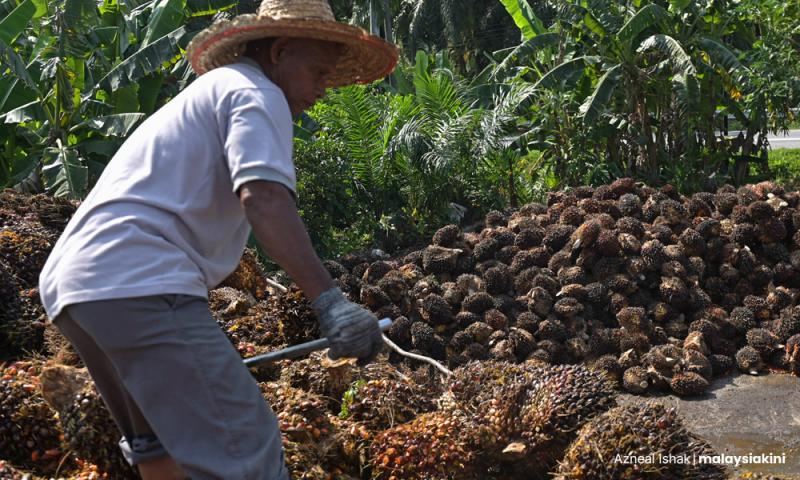M'sia, Indonesia to visit Brussels over EU deforestation law
The world's two biggest palm oil producers, Indonesia and Malaysia, will send their top officials to the European Union (EU) next week.
The move is to voice concern over a new EU deforestation law they believe could be detrimental to small farming businesses.
Indonesia and Malaysia account for about 85 percent of global palm oil exports, and the EU is their third-largest market.
Last month, the European Parliament approved a landmark deforestation law to ban imports to the EU of coffee, beef, soy and other commodities.
This is unless companies could provide "verifiable" information the products were not grown on land that was deforested after 2020.
Those in violation would face hefty fines.
Indonesia and Malaysia both confirmed the visit to Brussels would take place on May 30 and May 31.
Both have accused the EU of discriminatory policies targeting palm oil, and Malaysia had previously said it could stop exporting it to the EU over the deforestation law.
Environmentalists have welcomed the regulation as an important step to protect forests, with deforestation responsible for about 10 percent of global greenhouse gas emissions.
Indonesia's Economic Affairs Coordinating Minister Airlangga Hartarto said the law would burden smallholders with onerous administrative procedures.
"The law could exclude the important role of smallholders in the global supply chain and fail to recognise their significance and rights," Airlangga said in a statement.
Airlangga will make the Brussels trip with Deputy Prime Minister Fadillah Yusof, who is the Plantation and Commodities Minister.
The mission will seek to discuss ways of minimising the law's negative impacts, especially on smallholders, the statement said.
EU diplomats have denied the bloc is seeking to ban palm oil imports and said the law applies equally to commodities produced anywhere.
- Reuters
RM12.50 / month
- Unlimited access to award-winning journalism
- Comment and share your opinions on all our articles
- Gift interesting stories to your friends
- Tax deductable

 Reuters
Reuters